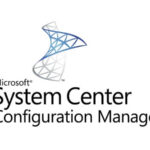Power BI Report Server Power BI Premium. Microsoft announced Power BI Premium – a capacity-based licensing model that increases flexibility for how users to access, share and distribute content in Power BI. The new offering also introduces the ability to manage Power BI reports on-premises with the included Power BI Report Server. Power BI Report Server is an on-premises server that enables Power BI Pro users to publish Power BI reports and distribute them broadly across the enterprise, without requiring report consumers to be licensed individually per user. Organizations now have the flexibility to publish their Power BI reports to the cloud (Power BI service), or manage them on-premises (Power BI Report Server) and move to the cloud at their pace.
Power BI Report Server is built on the proven SQL Server Reporting Services technology and includes all Reporting Services capabilities, including operational (RDL) reports. Power BI Report Server will be generally available late in the second quarter of 2017.
Power BI Premium allows customers to purchase Power BI capacity (virtual cores) in the cloud. It also includes the rights to concurrently deploy the Power BI Report Server to the equivalent number of cores on-premises.
Introducing Power BI Premium
- Flexibility to license by capacity. Power BI Premium introduces expanded licensing flexibility to help organizations equip users with the appropriate level of access to the Power BI service based on their unique needs. Por ejemplo, many organizations contain users who aren’t actively creating BI content but require the ability to consume content distributed to them. Power BI Premium enables Power BI Pro users to publish reports broadly across the enterprise and beyond, without requiring recipients to be licensed per user.
- Greater scale and performance. Organizations using Power BI Premium will be able to customize performance based on the needs of their team, department or the organization itself. The offering consists of capacity in the Power BI service exclusively allocated to each organization and supported by dedicated hardware fully managed by Microsoft. Organizations can choose to apply their dedicated capacity broadly, or allocate it to assigned workspaces based on the number of users, workload needs or other factors—and scale up or down as requirements change.
- Power BI apps. Along with the freedom to license Power BI for enterprise deployments, we are evolving content packs into Power BI apps to improve how users discover and explore insights at an enterprise scale. Available today, Power BI apps offer a simplified way of deploying dashboards and reports to specific people, groups, or an entire organization. Business users can easily install these apps and navigate them with ease, centralizing content in one place and updating automatically.
- Extending on-premises capabilities. Power BI Premium introduces the ability to maintain BI assets on-premises with Power BI Report Server. Power BI Report Server is an on-premises server that allows the deployment and distribution of interactive Power BI report – and traditional paginated reports – completely within the boundaries of the organization’s firewall. With Power BI Premium the same number of virtual cores an organization provisions in the cloud can also be deployed on-premises through the Power BI Report Server, without the need to split the capacity. Organizations can choose Power BI in the cloud, or elect to keep reports on-premises with Power BI Report Server and move to the cloud at their pace.
- Embedded analytics. With Power BI Premium we’re also advancing how Power BI content is embedded in apps created by customers, partners, and the broad developer community. As part of the new offering, we are converging Power BI Embedded with the Power BI service to deliver one API surface, a consistent set of capabilities, and access to the latest features. Moving forward we encourage those interested in embedding Power BI in their apps to start with Power BI Desktop and move to deployment with Power BI Premium. Existing apps built on Power BI Embedded will continue to be supported.



















